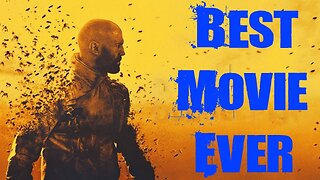(4) The Communication of Knowledge
Chapter 4: The Communication of Knowledge
How can I communicate knowledge? I can communicate knowledge through analogies, descriptions, demonstrations, and assignments.
Analogies are like signposts that point in the direction of knowledge. It is difficult for us to know whether we are traveling in the proper direction unless there are signs that we recognize. If we do not see signs that we recognize, we might turn back even if we are traveling in the proper direction. We are anxious until we see the signs we recognize, but we have the confidence to continue once we see them.
Analogies are expressions that relate the unfamiliar with the familiar. Analogies allow us to learn insights about the unknown from what is already known. Some analogies are more perfect than others, but all analogies have their limitations. A perfect analogy would no longer be an analogy, but rather a description of something that is already known.
An analogy is like a picture of an animal from just one specific angle. A single picture does not capture everything about the animal. However, we can begin to imagine the form of the animal and how it moves with enough pictures from different angles. All physics is to some degree an analogy that takes the complex structures and interactions of nature and relates them to simplified models and concepts.
Can you think of some ways of communicating knowledge through analogies? Can you think of some of the benefits and limitations of communicating knowledge through analogies?
Descriptions are like maps that chart paved roads between knowledge. It is difficult for us to know how to get back to the proper path when we are lost unless we have a map. If we do not have a map, then we may misinterpret the road signs and risk becoming lost. We are anxious about getting lost unless we have a map, but we have confidence in our eventual arrival when we have a map.
https://www.smashwords.com/extreader/read/801094/12/the-war-against-truth
Descriptions are expressions that outline how to build new knowledge in our mind using blocks of prior knowledge we already have. We cannot build the new knowledge in our mind if we do not already have those blocks of prior knowledge. If we do not have the blocks of prior to build the new knowledge, we must first build those blocks of prior knowledge using smaller foundational blocks from our experience.
Before we describe a new type of food to a person, we might first start with an analogy. We might compare the new type of food to a similar food that the person already knows. The analogy gives the person a context from which to interpret the description that is to follow. The description of the new type of food might consist of the necessary ingredients and the process of preparing the food. If the person does not know some of the ingredients, then we must describe those ingredients or show the person those ingredients.
Can you think of some ways of communicating knowledge through descriptions? Can you think of some of the benefits and limitations of communicating knowledge through descriptions?
Demonstrations are like guides that lead us along paths toward knowledge. It is difficult for us to navigate when there is not a paved road linking where we are to where we need to go. A guide makes it possible to navigate on unpaved roads quickly, but a guide may become an excessive crutch when navigating on familiar paved roads.
A demonstration allows a knowledgeable, skilled, and equip person to lead us along re-tracing the path of discovery. Demonstrations allow us to venture into new uncharted territory without the fear of becoming lost. We should appreciate the aid of demonstrations, but we must not become dependent on them.
We are not dependent on demonstrations if we anticipate predictions about the demonstrations before they are performed. We are not dependent on demonstrations if we are eager to explore and complete assignments even without them. We are dependent on demonstrations if we cannot remember what was demonstrated shortly after completing assignments. We are dependent on demonstrations if we are afraid to explore and complete assignments without them.
https://www.smashwords.com/extreader/read/801094/13/the-war-against-truth
Can you think of some ways of communicating knowledge through demonstrations? Can you think of some of the benefits and limitations of communicating knowledge through demonstrations?
Assignments are like missions that lead to the discovery of new paths toward knowledge. It is difficult for us to become familiar with our surroundings unless we explore them on our own. If we never explore our surroundings out of curiosity, then we many never have the luxury of finding new useful destinations at ease; out of ignorance we may be deprived of those useful destinations, and out necessity we may face the frustration of finding those new useful destinations in a panic.
Assignments can be a series of prompts or questions that guide us through our own process of exploration, discovery, and application. Assignments communicate the process of discovering the knowledge rather than communicating the knowledge itself. Assignments communicate trust and confidence in our own ability to discover and apply knowledge. Assignments are a way of communicating knowledge that is not already known.
Our assignment from now on is to always be continuing in a process of exploration, discovery, and application. Even when someone does not communicate an analogy to us, we are to create our own analogies and learn from them. Even when someone does not describe something to us, we are to create our own descriptions and learn from them. Even when someone does not demonstrate something to us, we are to simulate demonstrations visually in our minds and learn from them. Even when someone does not give us assignments, we are to create our own assignments and learn from them.
Can you think of some ways of creating mixtures of analogies, descriptions, demonstrations, and assignments? Can you think of some of the benefits and limitations of communicating knowledge through mixtures? Can you think of some other new ways of communicating knowledge? What would be the benefits and limitations of those other new ways?
https://www.smashwords.com/extreader/read/801094/14/the-war-against-truth
-
 56:23
56:23
Trumpet Daily
22 hours ago $1.10 earnedCohen Is Free to Lie and Steal, but Trump Is Guilty of Something - Trumpet Daily | May 31, 2024
7.77K24 -
 8:26
8:26
MichaelBisping
21 hours agoBISPING CHOKES OUT STEVE-O! | JACKASS STAR PUT TO SLEEP BY UFC CHAMP! *FULL VIDEO*
29.8K11 -
 20:00
20:00
Clownfish TV
19 hours agoGoogle Hurt ITSELF in Its Confusion!
43.6K47 -
 24:20
24:20
Brewzle
1 day agoWe Went Unicorn Bourbon Hunting In Louisville, KY
48.3K8 -
 35:39
35:39
Degenerate Jay
23 hours agoGoldenEye 007 Saved James Bond - Movie Review
47.3K4 -
 14:54
14:54
Mr Reagan
23 hours ago $0.46 earnedWE ARE ALL MAGA NOW
39.2K88 -
 15:35
15:35
Space Ice
22 hours ago'The Beekeeper' Exposes The Dark, Gritty, & Violent World Of Apiculture - Best Movie Ever
42.8K20 -
 3:29:53
3:29:53
SonnyFaz
1 day agoEric Kelly Trains Sonny FULL STREAM
43.7K12 -
 9:32
9:32
China Uncensored
17 hours agoBad Things Are Happening In Taiwan...
46K25 -
 38:24
38:24
Tucker Carlson
14 hours agoTucker Carlson and Donald Trump Jr. Respond to the Trump Verdict
165K593